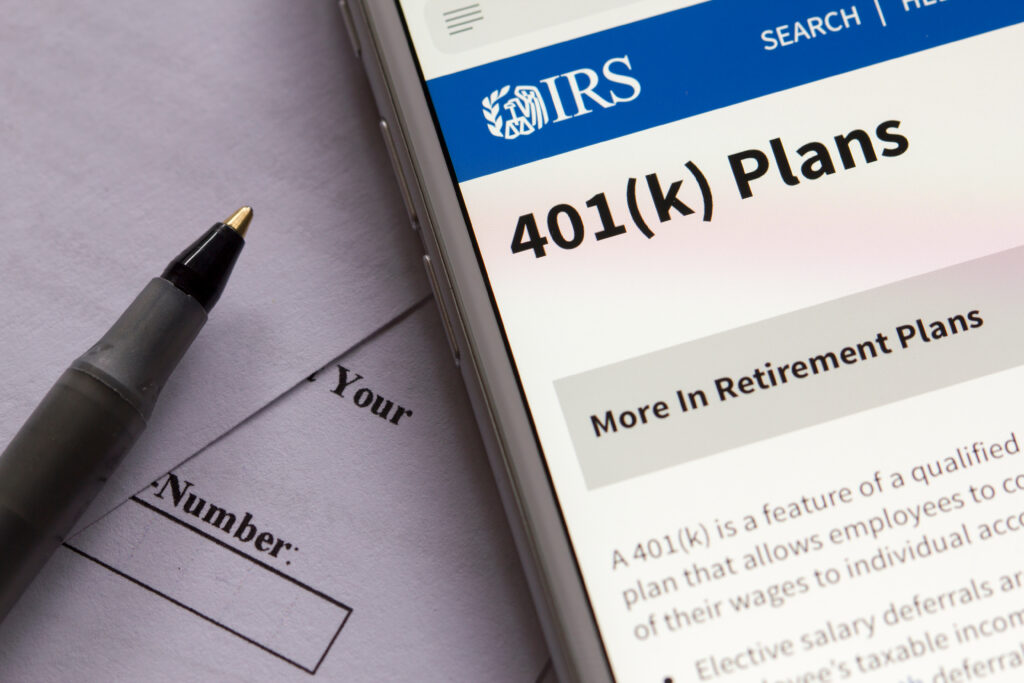
If your company sponsors an employee benefit plan (EBP), you may be wondering what happens during 401k plan audits. Initially, your company may have questions like: how do the auditors examine your benefit plan, and what 401k plan audit requirements do you know you need to know beforehand? This article will explain how you can prepare for your first audit and how you can ensure a stress-free audit engagement.
Audit Requirements for a Benefit Plan
The Employee Retirement Income Security Act of 1974 (ERISA) and the Internal Revenue Code (IRC) establish the rules and regulations for 401k plan audits. The Department of Labor’s (DOL) Office of Inspector General (OIG) ensures that benefit plan sponsors comply with ERISA.
Sponsors of benefit plans with more than 100 employees must have an annual audit of their employee benefit plan (with only a few exceptions, such as the 80/120 rule). The purpose of benefit plan audits is to ensure compliance with ERISA and the IRC.
Sponsors and plan administrators are required to hire an outside audit firm for independent 401k plan audits. The auditors work with the plan’s administration to develop audited financial statements and then submit them with Form 5500 is due 2 ½ months later. (Typically on October 15). Missing a 401k plan audit deadline can lead to costly penalties.
Important Deadlines for 401k Plan Audits
A company’s Form 5500 and financial statements must be filed on the last day of the 7th month following the end of a 401k plan year for the company to stay in compliance. The most important deadline for most businesses whose fiscal year is a typical calendar year (ending December 31) is July 31. For companies that file for an extension, their Form 5500 is due on October 15. Missing these deadlines can lead to costly penalties.
Documentation To Provide to Your Auditor
Every 401k audit will begin with fieldwork by the auditor. The auditor will review the 401k plan documents and test transactions during this phase. They will also interview key personnel, such as the plan administrator and investment committee members. The audit team will need certain plan-related documents to review. The following is information you should gather for the audit team:
1. Plan Documents
These include organizational plan documents such as an adoption agreement, IRS determination letter, summary plan description, and other documents as applicable. Also, provide the audit team with supporting information such as service agreements and loan policies.
2. Current Year Plan Financial Details
Provide the auditor with the retirement plan’s most recent financial statements. The statement should include:
- The trust report.
- The certification statement (if applicable).
- Participant statements or reports.
- Supporting documents such as loan and contribution schedules.
- Management’s assessment of the ERISA Section 103(a)(c)(3) audit certification for its provider.
Information related to the plan’s yearly activity will need to be organized and submitted to the auditor.
3. Previous Year Plan Details
The auditor will also request the 401k plan’s previous year’s financial statements, summaries, and descriptions for comparison. This information helps the auditor understand changes in the 401k plan from year to year.
4. Additional Documentation for 401k Plan Audits
The auditor will also require other information to complete the 401k audit. Other required documents include:
- Executed amendments to the plan documents
- Board meeting minutes related to the 401k plan
- 401k minutes from the governing committee
- Trust agreements kept with the plan recordkeeper or custodian
- A copy of the fidelity bond insurance of the plan
- Other important correspondence or agreements related to the plan
After Your Benefit Audit
After fieldwork completion, the auditor will prepare an audit letter. This letter will document any deficiencies found in the audit. The auditor will also give the company a final financial statement to attach to the plan’s Form 5500 before submitting it to the DOL.
Contact a Benefit Plan Audit Team
The 401k audit is a necessary process that helps ensure compliance and protect the interests of employees and employers. By understanding the requirements and gathering the required documentation, you can help make sure that your 401k audit goes smoothly.
Do you have an upcoming employee benefit plan audit? We can help. At Assurance Dimensions, our goal is to help you successfully manage your employee benefit plan with a well-planned, low-stress, and timely audit that meets all regulatory requirements.
Contact us today to work with a CPA firm with an experienced team of benefit plan auditors.

